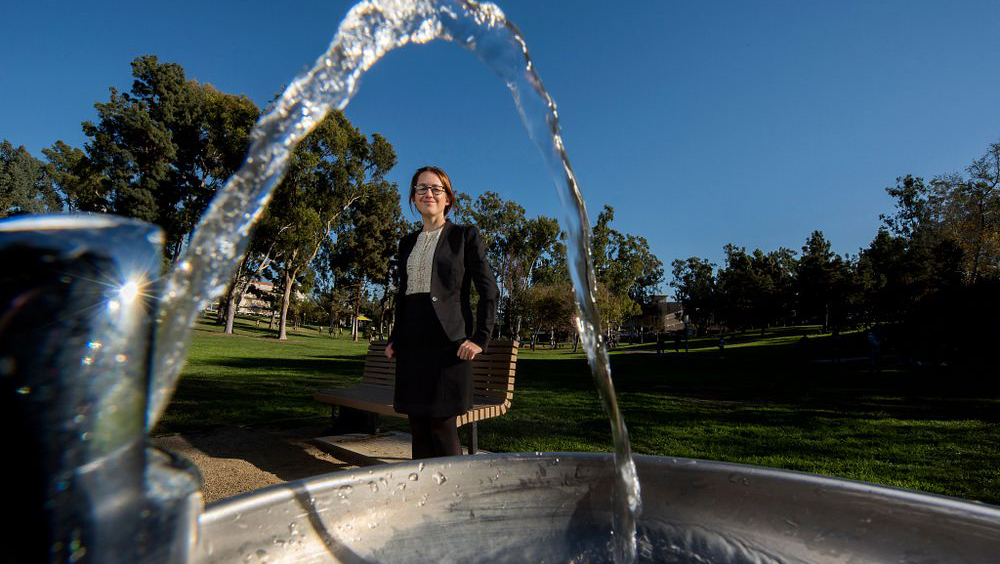
Maura Allaire, assistant professor of urban planning and public policy is the principal investigator on a study of inequities in drinking water and public health. Photo by Steve Zylius
California water districts and ratepayers will serve as test subjects
With a $350,000 grant from the National Science Foundation (NSF), researchers at the University of California, Irvine are launching a new project to illuminate governance failures that cause inequities in drinking water and public health.
Recent tap water crises have demonstrated that unequal access to safe water is a national concern. Often, treatment technologies are emphasized as the main solution. “However, we’re realizing more and more that the governance and policy side of things is absolutely crucial to get right,” says principal investigator Maura Allaire, assistant professor of urban planning and public policy. “That’s exactly what this project is diving into, using California as a testbed.”
Utilizing spatial statistics and focus groups, the UCI team will study how disparate exposure to water contamination can be caused by differences in accountability of elected officials and public availability of water quality information. Modeling is combined with the lived experiences of communities to reveal promising policies to improve safe water access. The multi-disciplinary team includes co-principal investigators Connie McGuire (director of community relationships at Newkirk Center’s Justice Shop) and Jun Wu (professor of public health), as well as collaborator Patricia Flores (director of Orange County Environmental Justice).
Based on what has been borne out across the country, many water boards operate without much public scrutiny and elected directors face little to no opposition at the polls. A pilot study from Allaire’s research group revealed that nearly three-quarters of utilities with water boards do not hold regular elections. A large part of the problem is there are not enough candidates running against current board members.
The project will rely on data analysis and modeling “to see if there are connections between higher levels of democracy and better water outcomes,” Allaire says. “We’ll also dive into the community experience and see how that process actually plays out.”
— Matt Coker